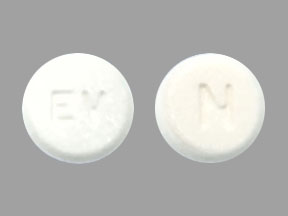
Everolimus Coupons & Savings Card – Discount Prices from $241.18
Generic for: Afinitor, Zortress, Afinitor disperz
My prescription
Edit
0.5MG, Everolimus (180 Tablets)
Select pharmacy

CVS
$241.18
COUPON PRICE
Albertsons
$733.47
COUPON PRICE
Walgreens
$783.00
COUPON PRICE
Walmart
$1538.75
COUPON PRICEEverolimus savings card
Show this card to your pharmacist
CVS
$241.18
BIN
ID
PCN
GRP
011867
LH45F34E29
HT
LABH001
Powered by
More prescriptions for tuberous sclerosis complex
More prescriptions for tuberous sclerosis complex
Price history for Zortress (brand) & Everolimus (generic)
180 Tablets, 0.5MG
Average retail price for Zortress
Average retail price for Everolimus
Average SaveHealth price for Everolimus
Our price history data is based on aggregated prescription data collected from participating pharmacies in America. Our prescription data updates daily to reflect the latest price changes. If you notice a missing data point, it means there wasn't sufficient data available to generate a monetary value for that date.
We analyzed Everolimus prices for (0.5MG, 180 Tablets) over the last 12 months. The average retail price was $474.87, while the average price using the SaveHealth discount card was $384.39. That's a savings of approximately 19.05% when using our Everolimus coupon.
Compared to the generic version, Zortress had an average price of $1541.94 over the same time period. With the SaveHealth savings card, Everolimus is 75.07% cheaper on average than Zortress.
*Retail prices are based on pharmacy claims data, and may not be accurate when we don't have enough claims.
Everolimus dosage forms
Dosage Quantity Price from Per unit 0.25MG 1 Tablet $11.49 $11.49 0.25MG 60 Tablets $55.00 $0.92 0.25MG 180 Tablets $128.39 $0.71 0.5MG 180 Tablets $241.51 $1.34 0.5MG 1 Tablet $13.25 $13.25 0.5MG 60 Tablets $90.04 $1.50 0.75MG 1 Tablet $16.72 $16.72 0.75MG 60 Tablets $130.49 $2.17 1MG 1 Tablet $22.47 $22.47 1MG 60 Tablets $268.36 $4.47
| Dosage | Quantity | Price from | Per unit |
|---|---|---|---|
| 0.25MG | 1 Tablet | $11.49 | $11.49 |
| 0.25MG | 60 Tablets | $55.00 | $0.92 |
| 0.25MG | 180 Tablets | $128.39 | $0.71 |
| 0.5MG | 180 Tablets | $241.51 | $1.34 |
| 0.5MG | 1 Tablet | $13.25 | $13.25 |
| 0.5MG | 60 Tablets | $90.04 | $1.50 |
| 0.75MG | 1 Tablet | $16.72 | $16.72 |
| 0.75MG | 60 Tablets | $130.49 | $2.17 |
| 1MG | 1 Tablet | $22.47 | $22.47 |
| 1MG | 60 Tablets | $268.36 | $4.47 |
| 2.5MG | 1 Tablet | $42.41 | $42.41 |
| 2.5MG | 28 Tablets | $944.48 | $33.73 |
| 2.5MG | 30 Tablets | $1011.30 | $33.71 |
| 5MG | 1 Tablet | $25.70 | $25.70 |
| 5MG | 28 Tablets | $428.58 | $15.31 |
| 5MG | 30 Tablets | $458.12 | $15.27 |
| 7.5MG | 1 Tablet | $28.07 | $28.07 |
| 7.5MG | 28 Tablets | $542.96 | $19.39 |
| 7.5MG | 30 Tablets | $581.10 | $19.37 |
| 10MG | 1 Tablet | $38.98 | $38.98 |
| 10MG | 28 Tablets | $752.08 | $26.86 |
| 10MG | 30 Tablets | $804.73 | $26.82 |
